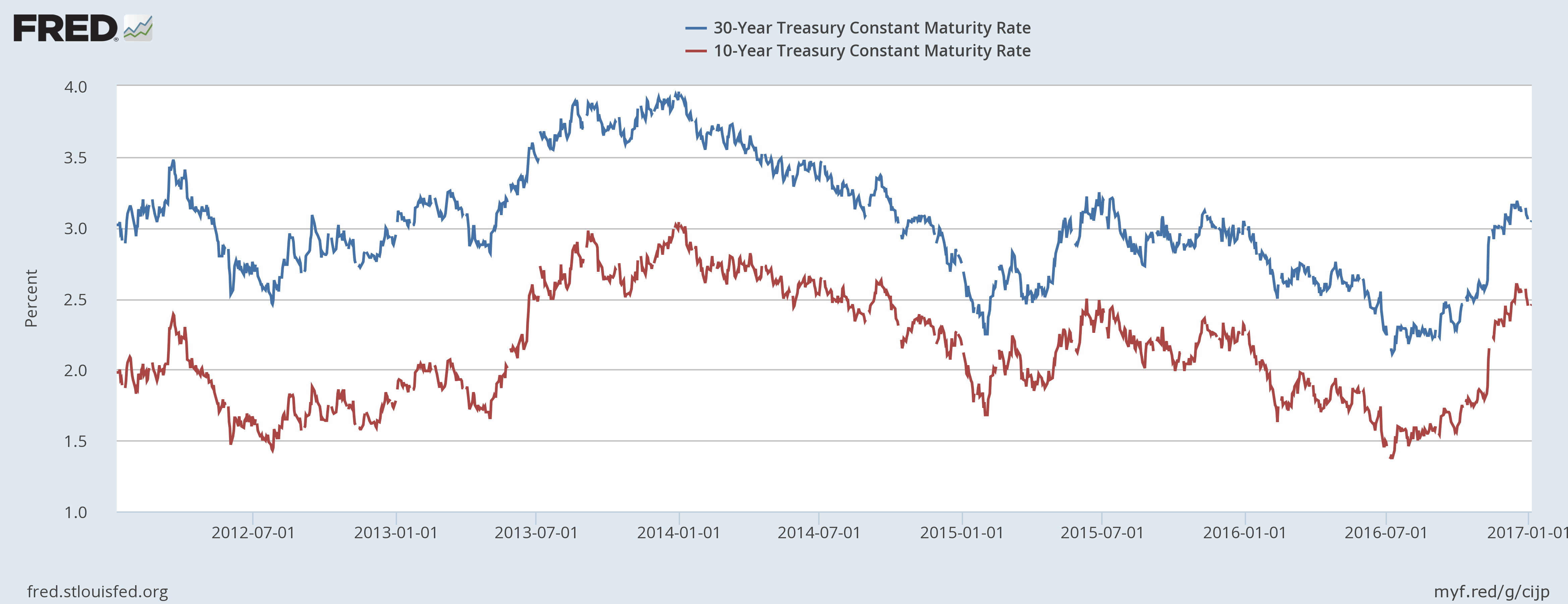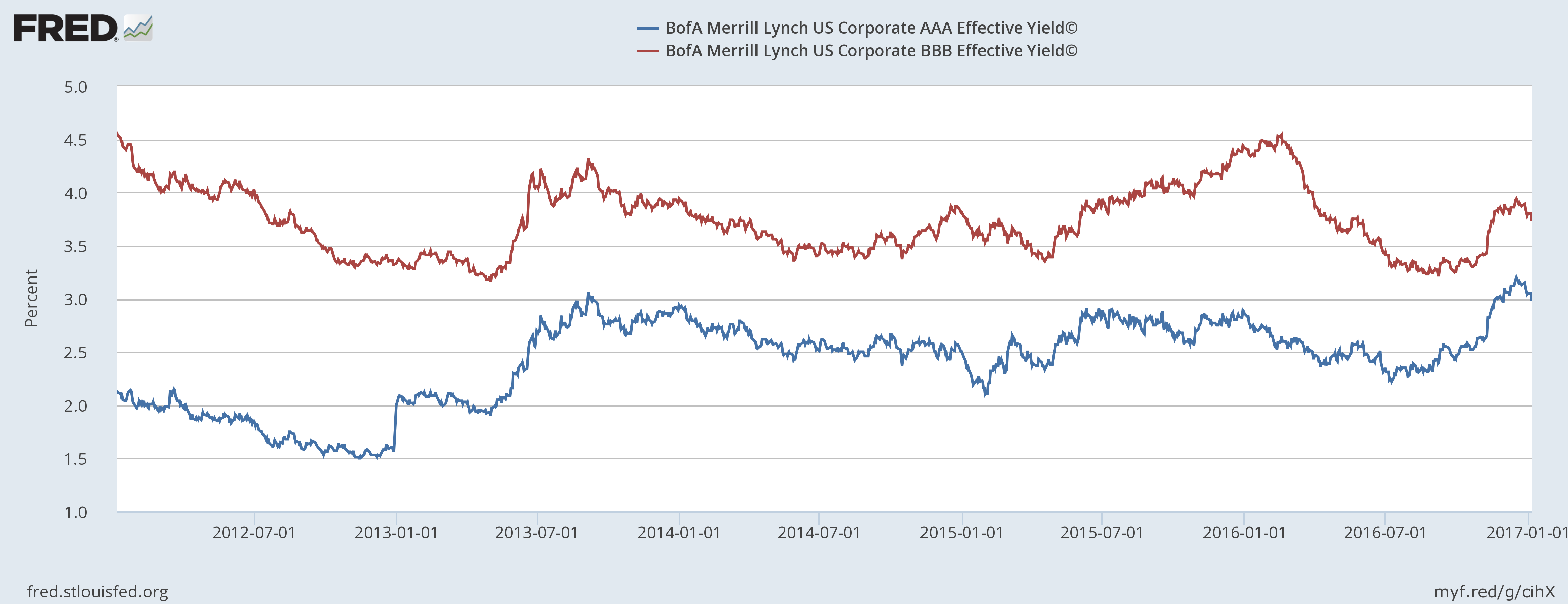This past week, the Federal Reserve issued their latest meeting minutes. They viewed the labor market positively: unemployment and initial claims for unemployment were low while wages were increasing at slightly higher rates. PCEs were growing moderately and future indicators of consumer spending were bullish.
Industrial production was recently unchanged but mostly due to a drop in utility output. Business investment was still weak but recent indicators showed a slight increase. The Fed is projecting slightly higher growth due to a perceived increase in fiscal spending and an increase in price pressures due to recent increases in energy prices.
Credit markets are in strong, good shape. Although rising inflation expectations (as measured by the spread between Treasuries and TIPS) have led to a sell-off in the Treasury market, rates are still historically low:

Corporate yields have also increased since the election:

AAA (in blue) are near 5-year highs. But BBB credit (in red) is still low by recent standards. The recent increase in yields explains higher corporate issuance since the first of the year:
Wall Street’s debt engine has begun 2017 in record form, as companies lock in borrowing costs shortly before Donald Trump’s inauguration as the US president-elect raises hopes of a stronger economy and higher interest rates.
After this week’s record start for debt sales, activity remained brisk on Wednesday with dollar deals completed by car companies Ford (NYSE:F) and Toyota (NYSE:TM) and banking groups Lloyds (NYSE:LYG), Bank of Montreal (NYSE:BMO) and Citigroup (NYSE:C). Earlier, Royal Bank Of Canada (NYSE:RY) priced a £500m sterling bond and ABN AMRO (AS:ABNd) issued €2.25bn of euro-denominated debt.
That followed 11 companies and banks selling $19.9bn of debt in the US on Tuesday as global financial markets reopened after the new year holiday. It marked the strongest start to a year on record, according to data from Dealogic. Global issuance totalled $21.2bn, also a record.
Consumer credit is also plentiful (from the Minutes):
Consumer credit continued to be readily available for most borrowers, and overall loan balances increased about 6 percent over the 12 months ending in September. In the subprime sector, credit card lending standards appeared to remain tight, and extensions of new credit to subprime auto loan borrowers edged down in the third quarter. Measures of consumer credit quality were little changed in the third quarter.
The interest rate on 30-year fixed-rate residential mortgages moved up in line with Treasury yields, although the rate remained low by historical standards and mortgage availability appeared little changed. Likely in part because of the increase in mortgage rates, refinance originations decreased in November, but purchase originations were little changed.
Consumers are in much stronger financial shape. The financial obligations and debt service payments ratio are near multi-decade lows as are credit card charge-offs:
Fitch’s prime credit card ABS chargeoff index hit a new low of 2.33 per cent for December for data going back to 1991, 10 basis points below its previous low of 2.43 per cent reached in October 2016, writes Joe Rennison in New York.
The index tracks approximately $138.4bn of bonds backed by $222.2bn of prime quality credit card loans, originated by institutions such as Bank of America (NYSE:BAC), Citibank, JPMorgan Chase (NYSE:JPM), Capital One (NYSE:COF) and Discover (NYSE:DFS).
“Credit card issuers have been tightening underwriting and focusing on higher FICO customers since the crisis, which coupled with low interest rates have helped cardholders better manage their finances and pay off their debt,” said Herman Poon, Senior Director, Fitch Ratings.
There is nothing in the credit markets that indicates a problem is coming down the pike in the next 12-18 months.
The Fed has not only increased their growth forecast, but also their inflation expectations. The former is higher due to the incoming administration’s promise for lower taxes and higher Federal spending, while the increase in the CMT-TIPS spreads has caused the latter. Increased Federal spending is not guaranteed.
While the Republicans control the House and have of late generally been more accepting of Trump’s positions, a large conservative core may not want to increase deficit spending. Tax reform is a far more achievable goal. While most commentators have not offered this explanation, the OPEC supply restriction deal is just as likely an explanation for increased inflation expectations as the potential for an increase in Federal spending and tax reform.
